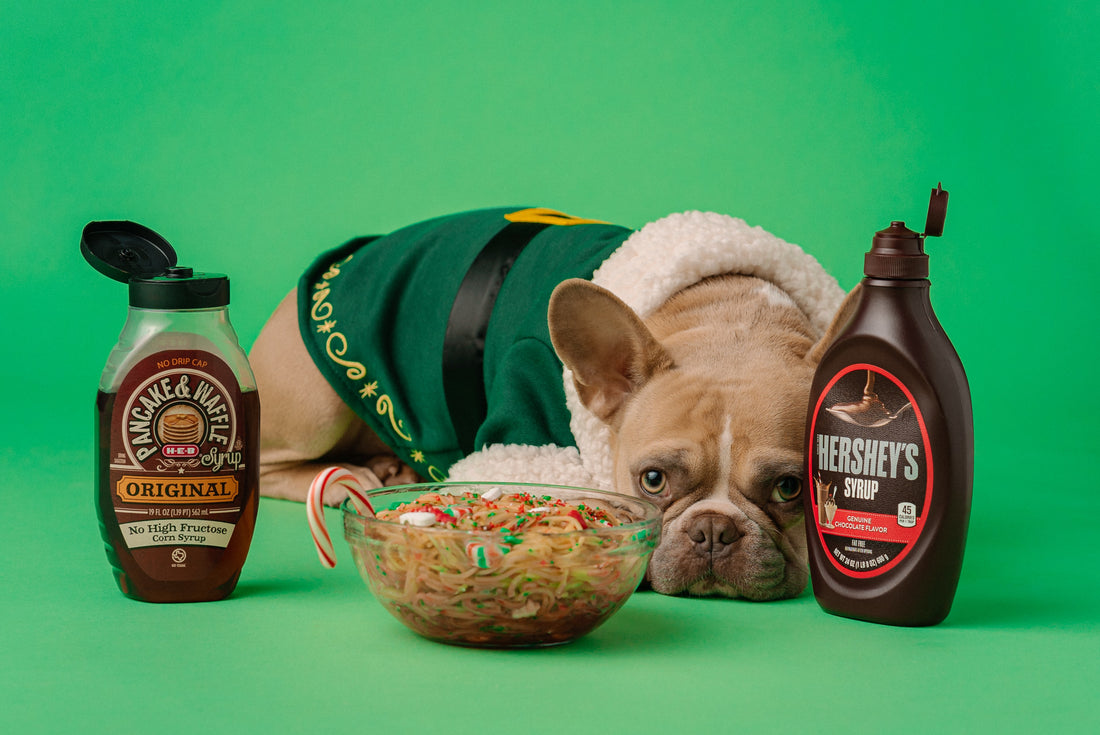
Human Foods: 9 Things to Avoid Feeding Your Pets
Share
When was the last time you fell prey to your little one’s starry-eyed plea for food? We know how difficult it is to resist feeding your pets food off the dining table, but did you know that there are serious repercussions to feeding them certain types of human food? Here is a list of the absolute no-nos to protect your fur pals:
1. Chocolate, Alcohol & Caffeinated Drinks (Coffee/Tea)
These items should be avoided at all costs as they contain methylxanthine, which are extremely toxic for pets. For example, as dogs cannot metabolise Theobromine in chocolates quick enough, the accumulation of this type of toxin in the liver may hence lead to Theobromine poisoning in dogs.
The onset symptoms of poisoning/toxicity include vomiting, diarrhea, excessive thirst & urination, hyperactivity/restlessness and abnormal heart rhythm while more severe symptoms include muscle tremors, seizures and heart failure leading to death.
2. Avocado
Avocados contain persin, a fungicidal toxin which can be dangerous when consumed in large amounts. Although persin is considered to be a mild toxin for dogs and cats, it is best to avoid feeding avocados to your pets in general. After all, it is always better to be safe than sorry.
3. Grapes & Raisins
Although the toxic substance in grapes/raisins have yet to be pinpointed by researchers, they have been known to cause kidney failure. Toxicity symptoms include appetite loss, lethargy, vomiting, diarrhea, abdominal pain and dehydration leading to increased thirst and urine production or complete lack of urine.
4. Macadamia Nuts
Ingestion of macadamia nuts have been associated with weakness in hind legs, vomiting, diarrhea, depression, muscle tremors and hypothermia in pets. As macadamia nuts are extremely high in fatty acids, some cats/dogs experience pancreatitis after ingestion.
5. Milk & Dairy
While dairy is not toxic for cats/dogs, many of them are lactose intolerant and can experience boating, flatulence, abdominal pain, vomiting and diarrhea. Hence, excessive long term consumption of dairy products may lead to more serious digestive problems. However, if you’d still like a dairy option for your pets, we’d recommend that you opt for the lactose-free milk in small to moderate amounts.
6. Onion, Garlic, Chives
Onions or any foods of the allium family (i.e. garlic, chives etc.) are toxic as they contain a substance known as N-propyl disulfide. This toxin damages red blood cells and may result in hemolysis (where the body destroys red blood cells). Unfortunately, severe hemolysis leads to anemia in cats/dogs and symptoms include weakness, lethargy, decreased appetite, pale gums and fainting.
7. Xylitol
Foods containing xylitol are dangerous as your pet’s body confuses xylitol with real sugars in your pet’s body. This leads to an excessive release of insulin, plummeting your pet’s real sugar level, resulting in hypoglycemia (low blood sugar). Symptoms include vomiting, diarrhea, difficulty walking/standing, lethargy and muscle tremors. In severe cases, pets develop seizures and/or liver failure.
8. Cooked Bones
Unlike raw bones, cooked bones become brittle and hard. They splinter easily into sharp shards which can cause serious internal damage to your pet’s gastrointestinal system. These include damage to the internal walls or intestinal instruction. Cooked weight-bearing bones are extremely hard and can cause damage to your pet’s mouth. This includes broken teeth, pierced gum and tongue. For those of you who prepare cooked food for your pet’s diet at home, do pay special attention to this!
9. Sugary Foods
Similar to humans, sugary food can cause obesity and diabetes in your pets. It is best if your pets avoid these food types as sugars can also lead to periodontal disease.
Remember, if your pets accidentally consume any of the above-mentioned food types, it is best that you monitor their behaviour closely and see a vet immediately if they display any signs of discomfort.
